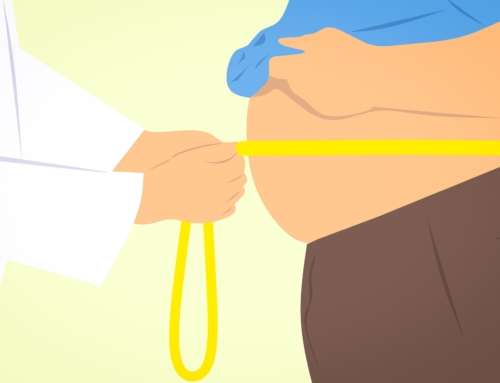Depression is one of the most common mental health issues with almost 300 million people affected. 16.2 million people in the United States will have had at least one major depressive episode last year alone and anti-depressants are a multi-billion dollar industry. So, if you have a low mood, you are not alone (although it can feel that way)!
Depression can be so overwhelming that it is difficult to function day to day or it can be hidden as evidenced by the many suicides that are seemingly out of the blue. Regardless, depression is a very real issue that most people at some time in their life will have at least a brush with this feeling.
Obviously, there are different degrees of depression.
If you are feeling like hurting yourself then please seek help immediately. Call a Suicide prevention hotline 1-800-273-8255, they are open 24 hours a day, seven days a week or go to your local emergency room and tell them you are thinking about hurting yourself or if a loved one is threatening suicide then take them (even when they don’t want to go). Medication and in-patient treatment can be life-saving so reach out!
With a lower mood in general I always like to start with ruling out some underlying medical causes before I sit back and say it is just a mental state. Often it is a combined issue, something has happened however there is an underlying medical issue that makes handling it even more difficult.
I have worked with many people who had depression that was not responding to medication by their psychiatrists only to learn that they had a thyroid problem or other issue.
Let’s talk about ways to help yourself when you have a blue mood and key areas I consider when evaluating someone with depression…… READ ON
Here are some things I consider when working up someone for depression:
- Low vitamin D – If you are always on the blue side, get your vitamin D level checked. Be sure and ask for the number because you don’t just want “normal”, you want the level between 60-80.
- Low B12/folate (knowing if you have the MTHFR genetic defect can be very important with how you are processing these nutrients so consider getting this tested)
- Low neurotransmitters like serotonin, PEA, & dopamine. You can measure these in urine and address them naturally by helping your body make more.
- Low adrenals – if you have had lots of stress then this is often a culprit and this can be measured in saliva (for cortisol/dhea) and urine (for norepinephrine/epinephrine)
- Low thyroid- get more than the TSH. Request at least the Free T4 and Free T3.
- Food sensitivities – I have seen food issues create significant depression the day following ingestion. If you find your mood going up and down significantly then start paying attention to what you ate the day before your mood dropped. You might just uncover a food issue. You can always test for food sensitivities. We use a test called the ALCAT test so call us if you would like to do this.
- Hormonal shifts – sudden drops in estrogen or progesterone can often contribute to a lower mood. In men, lower testosterone can lead to an apathy that is often incorrectly diagnosed as depression.
While you are in the process of ruling out underlying medical reasons for your low mood, try the following steps….
- Just by focusing on your breath, tension and mood can change. I prefer belly breathing. Place one hand on your belly and when you take in a deep breath focus on pushing that hand out and then slowly release all the air through our mouth. Do this for several breaths and do it anytime you start feeling overwhelmed.
- This is not a hit the gym for an hour type of exercise, even taking a short walk outside can release endorphins that raise your mood. Crank up some music and dance to your favorite song. Just get moving!
- Reach out to a friend and meet up face to face if possible. Make sure they are a supportive friend though as a negative friend may only make you feel worse. If you don’t feel like you have that friend then reach out to a counselor or join a support group. Other ways to get face-to-face contact is to volunteer. Helping others always lifts the mood!
- Get some sun! A little vitamin D goes a long way in lifting the mood. Just 10 minutes a day can really do wonders.
- Pull up a funny youtube video and just allow yourself to cut loose and laugh. Animal capers are usually quite funny so if you don’t know where to start go there first.
- Eat healthy. We often reach for comfort foods that only bring our mood down even lower. High carbs and starches are often culprits so limit these. Eat regularly and don’t skip meals. Focus on good fats and protein and lower carbs. I’m not talking about starting some major diet but make some mindful choices.
- Work on changing how you think. When we are in a blue mode it is easy to start thinking we have no control over anything and just want to crawl back into a shell and hide. Take a second to focus on ONE thing you are grateful for. It doesn’t have to be major. Maybe you are grateful for a particular friend, a pet, yummy tasting brownies, your job, etc…. When you make time to focus on something you are grateful for your energy starts to shift into a more positive mode. Another method is to close your eyes and put your hand on your heart. Think of one moment when you felt safe, loved and cherished. Not an entire relationship, just one moment. Maybe this is a with a parent, a child, a spouse, friend, teacher, therapist or even a pet. As you recall this moment, allow yourself to feel the warmth wash over you as you hold this vision of this memory for at least 30 seconds. Maybe take this moment right now to write down a few moments you have felt safe, loved and cherished so when you are feeling blue you can reach for them.
Anti-depressants are always an option if you just can’t get back on track. Although I don’t prescribe these often I do think there are times in our life that they are appropriate especially when there are overwhelming circumstances going on in your life. Keep in mind that once you get on these, you should be able to get off of them after an appropriate amount of time. I always recommend staying on them at least 3-6 months and then slowly (and I do mean slowly) taper off of them. If your depression is not severe, then supplements can often really help. I reach for several that can boost the neurotransmitters. Even magnesium can make a huge difference!
Keep in mind, if you are feeling blue you are not alone! Take a moment and look out your window right now and just notice the green grass, the green leaves on the tree and maybe even a flower or too. Breathe and think of your one moment you felt safe, loved, calm and know without a shadow of a doubt that you are precious. You are important. You matter!
To your health,
Laura









